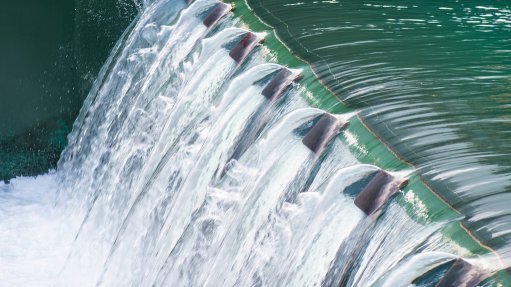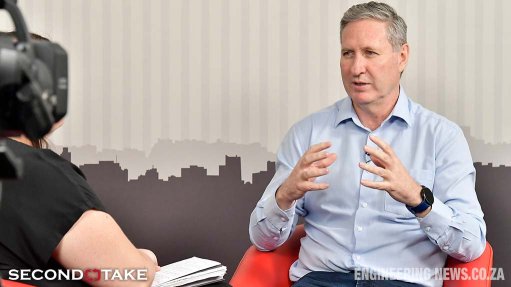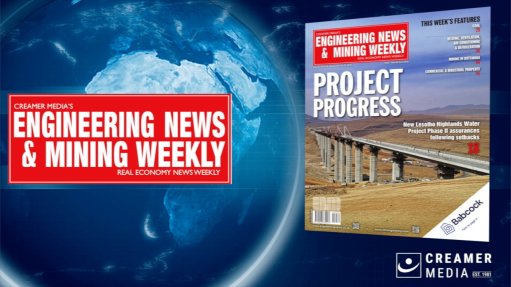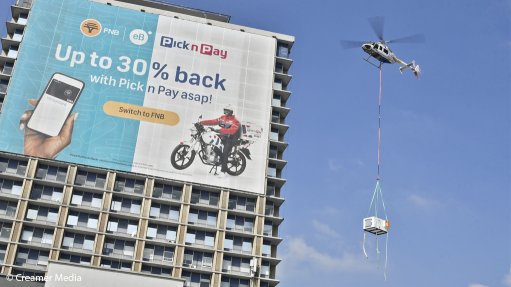Local pressure vessel industry hard pressed

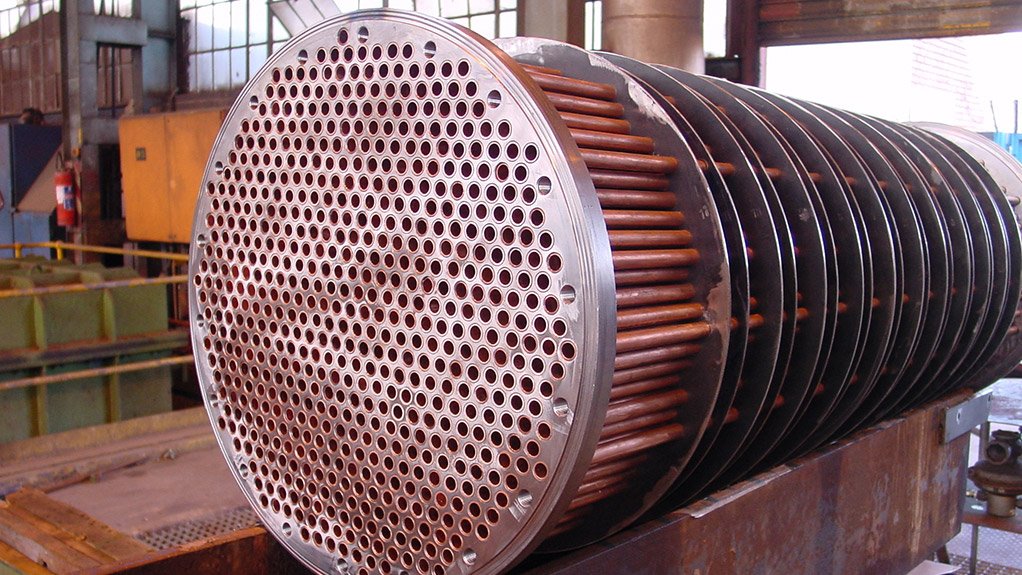
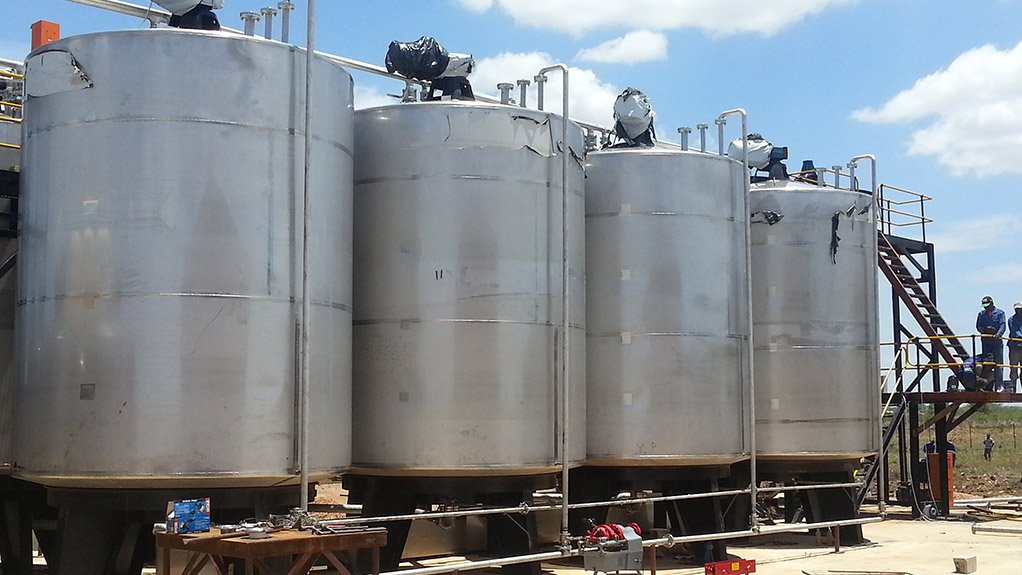
PRESSURE TEST The major challenge facing the industry has been the decline in capital expenditure projects
LOCAL VS IMPORTS The Pressure Equipment Manufacturers Association is concerned about the number of imported pressure vessels entering South Africa
The local pressure vessel industry has been under significant strain for the last several years and there are no signs of improvement, at least not for the remainder of this year, industry body the Pressure Equipment Manufacturers Association (Pema) executive director Ken Dewar tells Engineering News.
He explains that the most significant challenge facing the industry has been the decline in capital expenditure projects in South Africa over the last few years, particularly in the mining and mineral-processing sectors.
“The pressure vessel industry has been adversely affected by the recent five-month strike in the platinum sector, which has led to a further erosion of investor confidence. Additionally, the unrest in the metals and engineering sector industry is further exacerbating the situation,” Dewar laments.
Moreover, he notes that other issues that negatively impact on the competitiveness of the pressure vessel industry include “rapidly escalating wage bills and significant increases in administered prices, such as power, gas, fuel, port charges and toll roads”.
“Cumbersome border controls and bureaucracy make exporting products to neighbouring countries extremely challenging,” Dewar adds.
Meanwhile, he tells Engineering News that Pema is in discussions with the Department of Trade and Industry (DTI), about the large number of imported products, particularly from Asia, that are Standard Industry Classification (SIC) coded as “projects” by large capital project developers and not in accordance with their correct SIC codes.
Dewar explains that using these “project SIC codes” effectively prevents many of these products from being correctly recorded and, thereby, distorts import statistics.
“This makes monitoring the flow of imported products and taking action against companies that are dumping them in South Africa below market-related prices highly challenging.”
He highlights that, with the current global slowdown in engineering work, Pema has noticed a rise in competition from many “non-traditional Asian” countries, such as Malaysia and Thailand, as well as from Europe.
He says using many non-World Trade Organisation-compliant export incentives, such as State-subsidies, allows for these products to enter South Africa at prices against which local pressure vessel manufacturers cannot compete.
Dewar notes that these discussions with the DTI are taking place as part of a broader “metals industry cluster” and is being led by a national employer federation representing the metal and engineering industry, the Steel and Engineering Industries Federation of South Africa.
Skills Development Discussion
Dewar tells Engineering News that Pema is working with local public–private partnership best practice promotion body the South African Capital Equipment Export Council (Saceec) to establish a training programme for the fabrication and welding industries.
The training initiative is based on the example of the Toolmaking Association of South Africa’s (Tasa’s) National Tooling Initiative, which was established in 2004 by the tool, die and mould- making industry.
Tasa was a driving force in the mobilisation of the National Tooling Initiative and has as a national objective the “revitalisation” of the local tool, die and mould-making industry, which “is contributing to the strategic growth of the manufacturing sector and technical skills development in the sector”.
Dewar notes that the training programme initiative envisioned by Pema and Saceec is still in its feasibility stage and many factors still need to be evaluated, particularly funding.
About Pema
To assist in the process of aligning with new pressure equipment regulations (PER) introduced in the amendment of the Occupation Health and Safety Act (OHSA) No 85 of 1993, industry body the Pressure Vessel Manufacturers Association of South Africa (PVMA) was relaunched as Pema in 2010.
Changes to the PER resulted in more companies that are involved in the manufacturing of pressure equipment being affected by the regulations, as they were not previously included.
Pema realigned its membership criteria to cater for these companies.
The PVMA’s structures were aligned with old Act regulations, which defined the manufacturer, while the new regulations includes all facets of fabrication, such as pipeworks, fittings and flanges.
According to Pema, its new name mirrors the change in its philosophy, which involves making the association more relevant to its members and industry.
Pema aims to represent member interests in major national projects at supply management forums that are run by large end-users and State-owned enterprises, and in the formulation of legislation and standards, such as the OHSA and, specifically, SANS 347, which pertains to the categorisation and conformity assessment criteria for all pressure equipment.
Pema also aims to develop skills at all levels of industry and to promote local content and manufacturers, as well as export opportunities, while overseeing the relationship between members and employees or trade unions.
Comments
Press Office
Announcements
What's On
Subscribe to improve your user experience...
Option 1 (equivalent of R125 a month):
Receive a weekly copy of Creamer Media's Engineering News & Mining Weekly magazine
(print copy for those in South Africa and e-magazine for those outside of South Africa)
Receive daily email newsletters
Access to full search results
Access archive of magazine back copies
Access to Projects in Progress
Access to ONE Research Report of your choice in PDF format
Option 2 (equivalent of R375 a month):
All benefits from Option 1
PLUS
Access to Creamer Media's Research Channel Africa for ALL Research Reports, in PDF format, on various industrial and mining sectors
including Electricity; Water; Energy Transition; Hydrogen; Roads, Rail and Ports; Coal; Gold; Platinum; Battery Metals; etc.
Already a subscriber?
Forgotten your password?
Receive weekly copy of Creamer Media's Engineering News & Mining Weekly magazine (print copy for those in South Africa and e-magazine for those outside of South Africa)
➕
Recieve daily email newsletters
➕
Access to full search results
➕
Access archive of magazine back copies
➕
Access to Projects in Progress
➕
Access to ONE Research Report of your choice in PDF format
RESEARCH CHANNEL AFRICA
R4500 (equivalent of R375 a month)
SUBSCRIBEAll benefits from Option 1
➕
Access to Creamer Media's Research Channel Africa for ALL Research Reports on various industrial and mining sectors, in PDF format, including on:
Electricity
➕
Water
➕
Energy Transition
➕
Hydrogen
➕
Roads, Rail and Ports
➕
Coal
➕
Gold
➕
Platinum
➕
Battery Metals
➕
etc.
Receive all benefits from Option 1 or Option 2 delivered to numerous people at your company
➕
Multiple User names and Passwords for simultaneous log-ins
➕
Intranet integration access to all in your organisation








